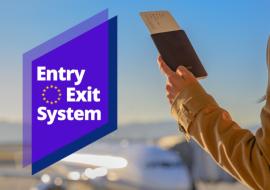Google Unveils AI Travel Agent to Transform Booking Experience

Google is taking a bold step toward transforming the travel industry with the launch of an artificial intelligence (AI) agent designed to autonomously manage travel bookings. The tech giant is evolving its search engine into a comprehensive travel assistant, capable of planning, comparing, and completing purchases directly through a conversational interface.
The company recently confirmed the gradual rollout of “agentic restaurant reservations” in the United States via its new AI Mode, without requiring users to register in Google Labs. This model is expanding to event ticketing and local services, with flights and hotels slated for the next phase.
According to Julie Farago, Google’s Vice President of Engineering, users will soon be able to book flights and hotels directly within the AI interface. The process is designed to be simple and intuitive: travelers provide dates, budgets, and preferences, while the AI compares options from multiple providers, displaying images, reviews, availability, and prices before completing the booking with the chosen partner.
To drive widespread adoption, Google has partnered with key industry players such as Booking.com, Expedia Group, Choice Hotels International, IHG Hotels & Resorts, Marriott International, and Wyndham Hotels & Resorts. While the payment processing model is still under development—whether Google will act as an intermediary or process payments directly—the objective is clear: turn a conversation into a completed reservation with minimal friction.
Google’s move intensifies competition with OpenAI, which has evolved ChatGPT from a simple chatbot into a platform capable of executing third-party functions within its conversational environment. Travel companies including Expedia and Booking.com have integrated services across both ecosystems, adopting a multichannel strategy to maintain visibility in emerging conversational interfaces.
Google excels in advanced visual comparisons within search results, while OpenAI stands out for fluid conversational interactions and rapid user adoption. This technological rivalry is reshaping global travel distribution.
Currently, neither platform fully manages payment processing, and complex tasks such as cancellations, loyalty point usage, or multi-destination itineraries remain challenging. Accuracy concerns and potential errors in high-value transactions also persist.
However, the trend is unmistakable: experts predict that within 12 to 18 months, a significant portion of travel bookings will be completed through conversational AI. Instead of navigating multiple websites, travelers will simply “speak” to AI assistants to handle the entire process.














